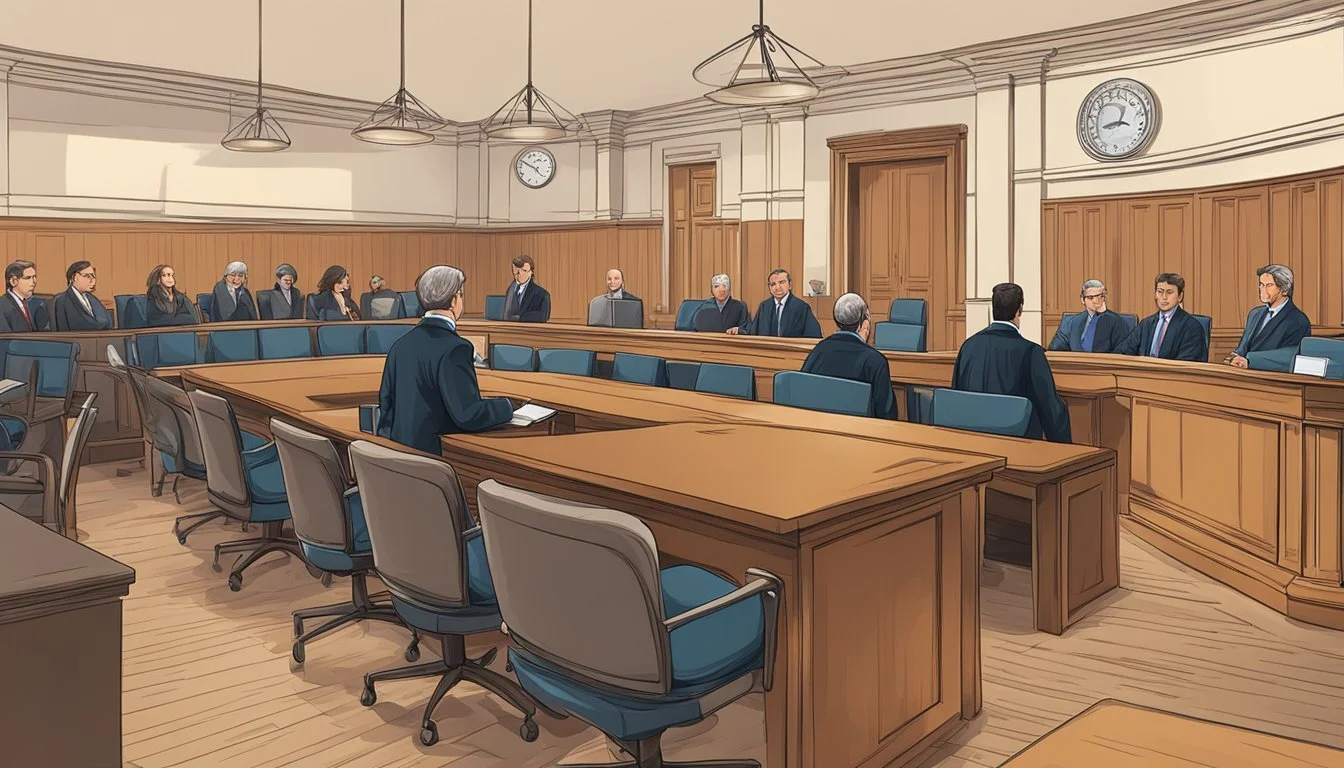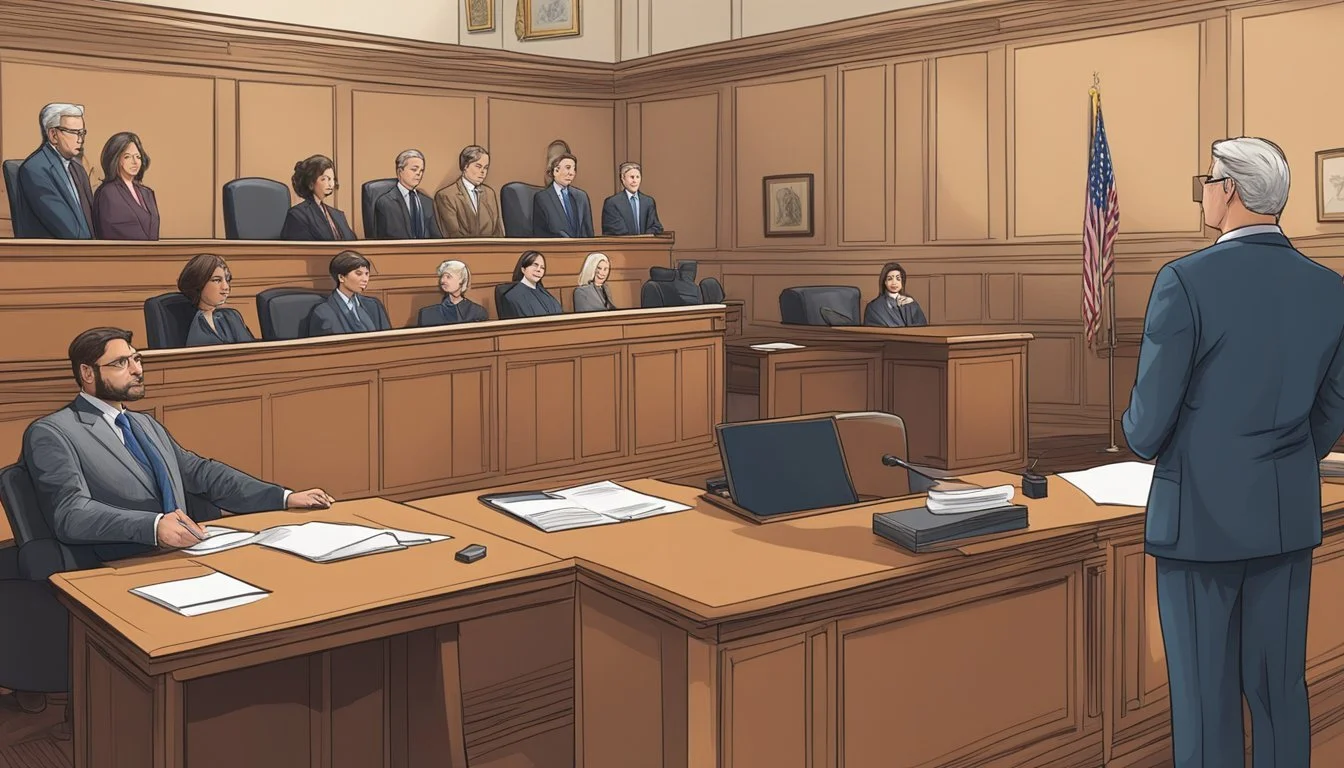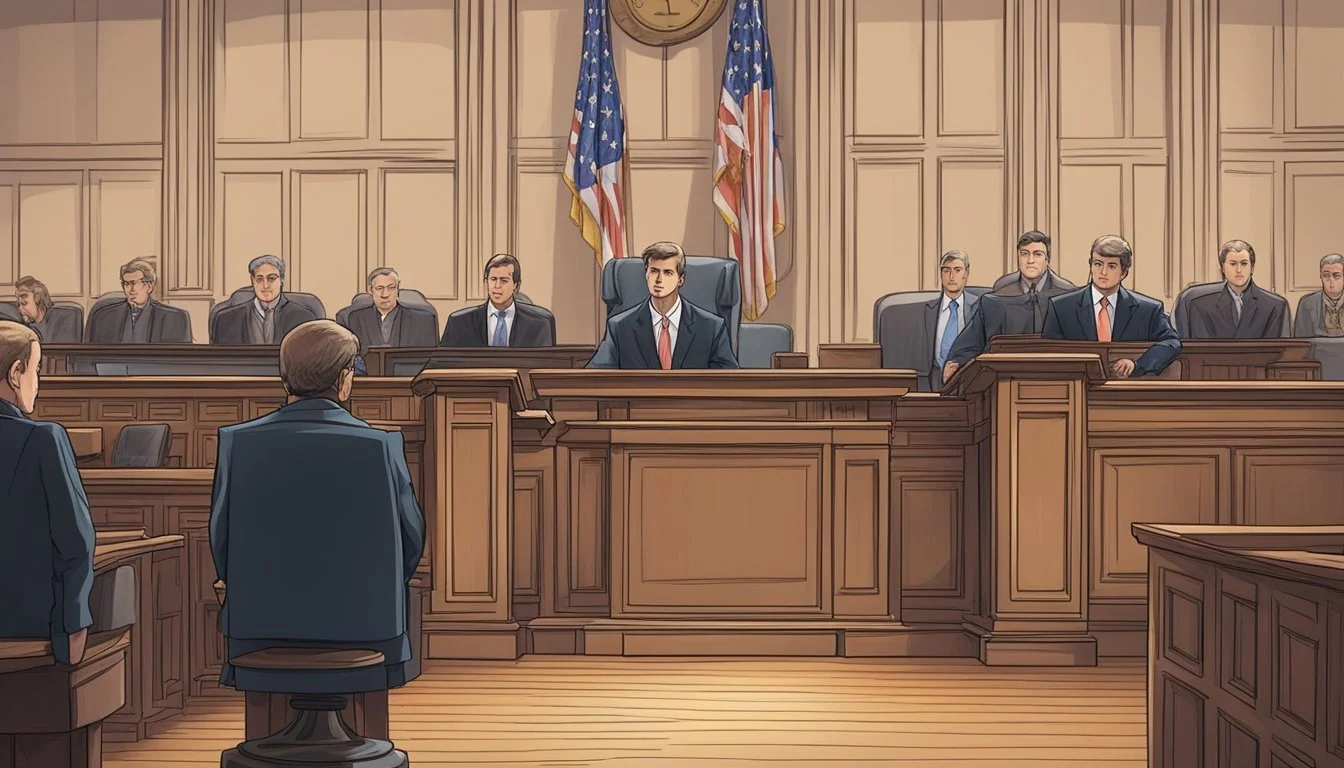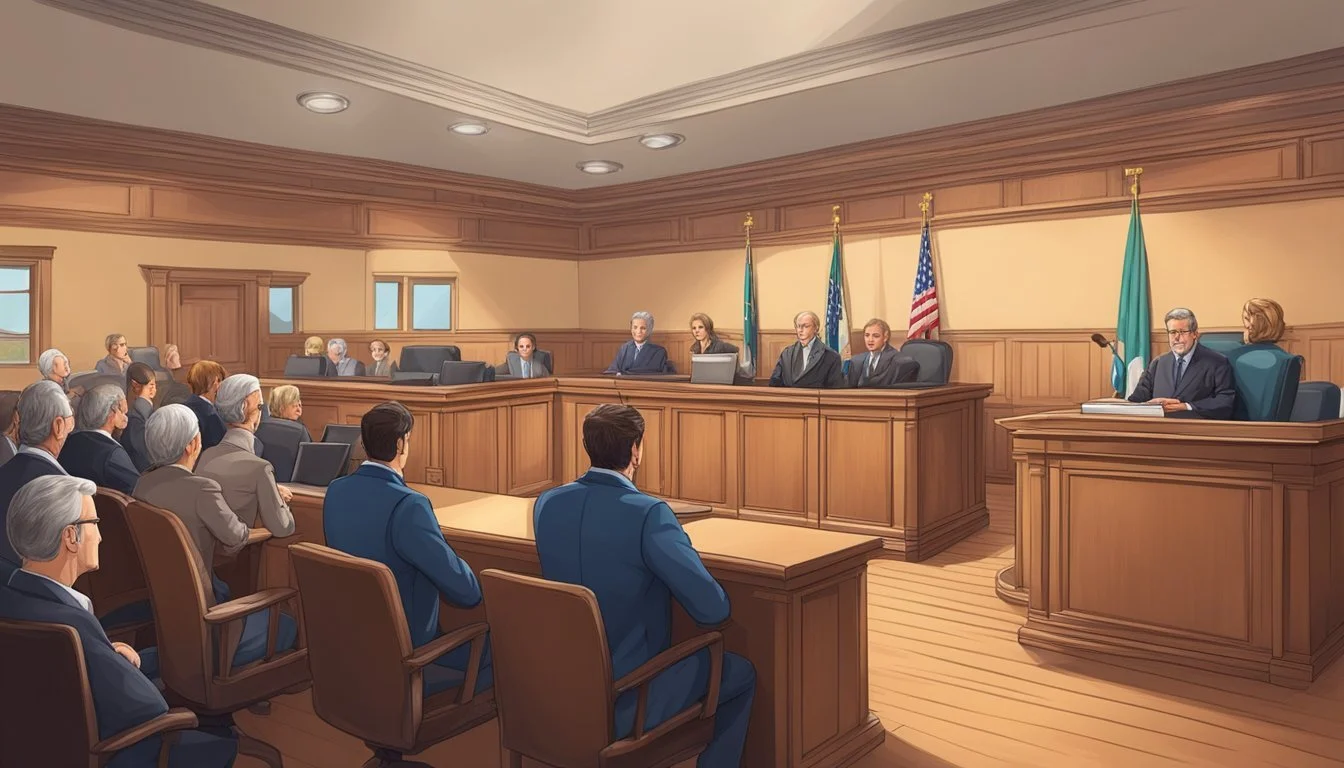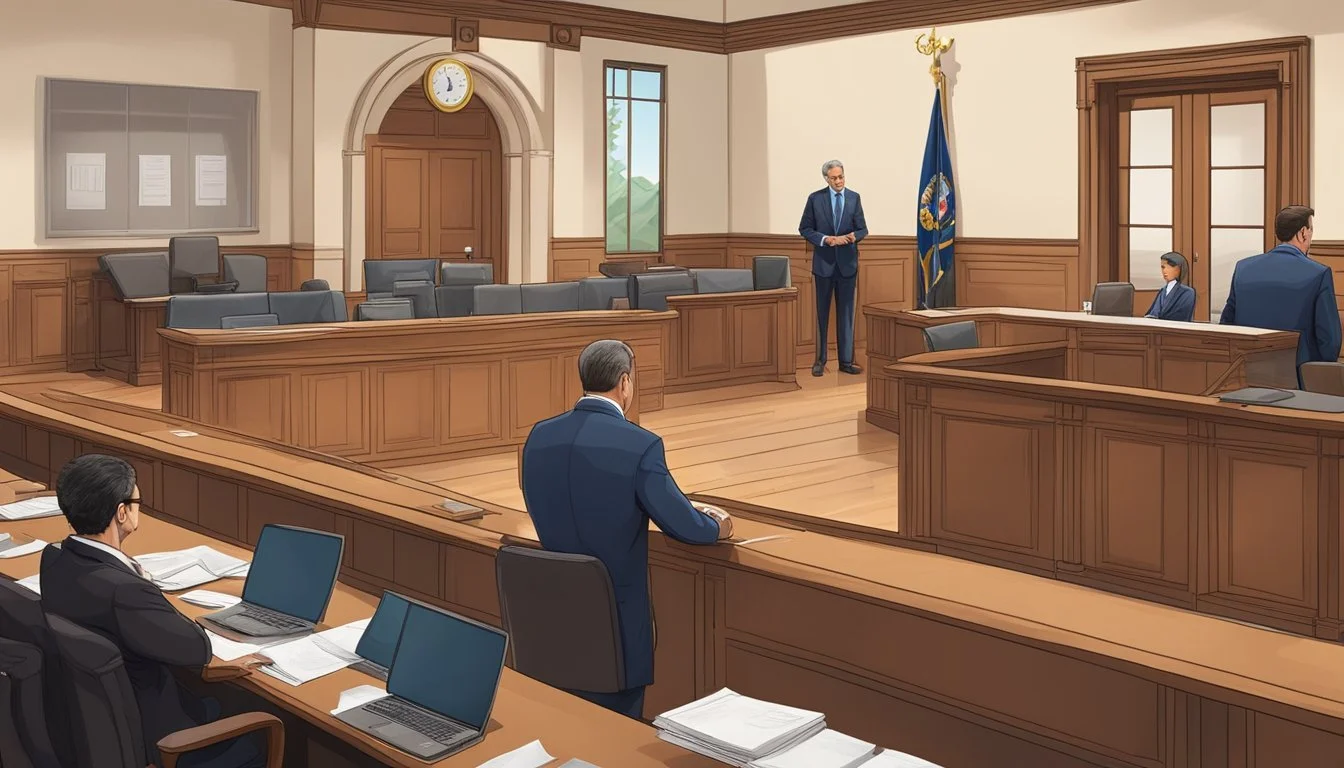The Menendez Brothers and Advancements in Forensic Psychology
Reexamining a Landmark Case
The Menendez brothers case shocked the nation in 1989 when Lyle and Erik Menendez were accused of murdering their wealthy parents. Recent developments have brought this notorious case back into the spotlight, with advancements in forensic psychology offering new perspectives on the brothers' claims of abuse.
Modern forensic techniques and evolving understanding of trauma have opened up possibilities for re-examining crucial evidence in the Menendez case. Experts are now analyzing previously overlooked details that may support the brothers' allegations of sexual abuse by their father. This shift reflects broader changes in how society perceives and believes male victims of childhood sexual abuse.
The potential for new evidence and expert testimony about post-traumatic stress disorder (PTSD) could significantly impact the legal standing of the Menendez brothers. If courts admit this information, it may lead to a reevaluation of their convictions or sentences. As forensic psychology continues to advance, it raises intriguing questions about how past cases might be viewed through a modern lens.
Origins of the Menendez Family
Jose and Kitty Menendez immigrated to the United States from Cuba, building a life of affluence and success. They raised two sons, Lyle and Erik, in the exclusive community of Beverly Hills, California.
Life in Beverly Hills
The Menendez family settled in a luxurious Beverly Hills mansion, exemplifying their rapid ascent to wealth and status. Jose Menendez, a successful entertainment executive, provided his family with a lavish lifestyle. Their home became a symbol of their achievements and social standing within the elite neighborhood.
The family's life in Beverly Hills was marked by material comfort and access to prestigious schools and social circles. Lyle and Erik grew up surrounded by opulence, attending exclusive private schools and participating in high-end recreational activities typical of their affluent peers.
Family Dynamics
Behind the facade of prosperity, the Menendez family grappled with complex interpersonal relationships. Jose Menendez was known for his strict parenting style, often placing intense pressure on his sons to excel academically and professionally.
Kitty Menendez, while devoted to her family, struggled with her own personal challenges. The couple's relationship was reportedly strained at times, impacting the overall family dynamic.
The brothers, Lyle and Erik, developed a close bond, possibly as a result of navigating their parents' expectations and the pressures of their privileged upbringing. This complex family structure would later become a focal point in understanding the tragic events that unfolded in their Beverly Hills mansion.
The Menendez Brothers
Erik and Lyle Menendez gained notoriety for the 1989 murder of their parents in Beverly Hills. Their case sparked debates about family dynamics, abuse, and the justice system.
Erik and Lyle
Erik and Lyle Menendez were born into a wealthy family. Erik, the younger brother, was 18 at the time of the murders, while Lyle was 21. On August 20, 1989, they shot their parents, Jose and Kitty Menendez, multiple times in their Beverly Hills mansion.
The brothers initially claimed they were not involved in the killings. However, they later confessed to the murders, citing years of alleged sexual, physical, and emotional abuse by their father as the motive.
Their defense team argued that the killings were an act of self-defense, stemming from fear that their parents would kill them to prevent the alleged abuse from being exposed.
Public Perception
The Menendez brothers' case captivated the public due to its sensational nature and televised trials. Initially, many viewed them as cold-blooded killers motivated by greed for their parents' fortune.
As details of alleged abuse emerged, public opinion became more divided. Some sympathized with the brothers, believing their claims of mistreatment, while others remained skeptical.
Media portrayals, including documentaries and dramatizations like "Monsters: The Lyle and Erik Menendez Story," have influenced public perception over the years.
The case continues to spark discussions about familial abuse, mental health, and the complexities of the legal system. Recent developments, including potential resentencing, have reignited interest in the Menendez brothers' story.
The Murders
The Menendez brothers' case shocked the nation with its brutality and complexity. The violent deaths of Jose and Kitty Menendez at the hands of their sons, Lyle and Erik, unfolded in a series of shocking events that captivated public attention.
The Crime
On August 20, 1989, Jose and Kitty Menendez were watching television in their Beverly Hills mansion when tragedy struck. Lyle and Erik Menendez, then 21 and 18 years old, entered the room armed with shotguns. They fired multiple rounds at their parents, killing them in a gruesome attack.
Jose Menendez was shot point-blank in the back of the head, while Kitty Menendez was shot multiple times as she attempted to escape. The brothers then shot both parents in the kneecaps to stage the scene as a mob hit.
Aftermath and Confession
After the murders, Lyle and Erik Menendez went on a spending spree, using their inheritance to buy expensive cars, watches, and even a restaurant. Their lavish lifestyle raised suspicions among investigators.
Months after the crime, Erik confessed to his psychologist, Dr. Jerome Oziel. This confession became a crucial turning point in the case. Lyle, upon learning of Erik's confession, threatened Dr. Oziel, leading to the brothers' arrest in March 1990.
The police found no signs of forced entry at the crime scene, further implicating the brothers. Their conflicting alibis and inconsistent statements also raised red flags for investigators.
Legal Proceedings
The Menendez brothers' case involved complex legal proceedings spanning multiple trials and appeals. Their journey through the justice system was marked by intense scrutiny and controversial evidence.
The Trials
The Menendez brothers faced separate juries in their initial trial, which began in July 1993. Prosecutors argued the murders were motivated by greed, while the defense claimed abuse. This trial ended in hung juries for both brothers.
A second trial commenced in August 1995, this time with a single jury. The judge limited testimony about alleged abuse, significantly impacting the defense strategy. After months of proceedings, the jury found Lyle and Erik Menendez guilty of first-degree murder and conspiracy to commit murder on March 20, 1996.
Sentencing and Appeals
On April 17, 1996, the Los Angeles County Superior Court sentenced both brothers to life in prison without the possibility of parole. The Menendez brothers appealed their convictions, but the California Supreme Court upheld the verdicts in 2005.
In recent developments, Los Angeles County District Attorney George Gascón announced in 2023 that his office is reviewing new evidence in the case. This decision could potentially lead to a resentencing hearing. The brothers' attorneys have filed new evidence they claim sheds light on abuse suffered at the hands of their father, reopening discussions about the case's complexities.
Role of Forensic Psychology
Forensic psychology played a pivotal role in the Menendez brothers' case, shaping both the trial proceedings and public understanding. Experts analyzed the brothers' mental states and alleged abuse, while new techniques emerged to evaluate evidence and testimony.
Impact on Trial
Forensic psychologists provided crucial insights into the Menendez brothers' mental states during the trial. They examined claims of sexual abuse and self-defense, offering expert testimony on the psychological effects of trauma. These professionals analyzed therapy sessions and evaluated the brothers' behaviors before and after the murders.
The California Board of Psychology set standards for expert witnesses, ensuring qualified professionals presented evidence. Forensic psychologists helped jurors understand complex psychological concepts, including "learned helplessness" and post-traumatic stress disorder.
Their assessments influenced legal arguments about the brothers' motives and mental capacity at the time of the killings.
Evolving Evidence
Advancements in forensic psychology led to new methods for evaluating evidence in the Menendez case. Experts developed techniques to assess the credibility of abuse allegations and analyze the brothers' statements during therapy sessions.
These advancements allowed for a more nuanced understanding of the psychological factors at play. Forensic psychologists used improved methodologies to examine the consistency and authenticity of the brothers' claims.
New evidence emerged through these evolving techniques, prompting discussions about potential evidentiary hearings. The field's progress highlighted the importance of ongoing research and its impact on high-profile cases like the Menendez brothers'.
Cultural Impact
The Menendez brothers case has left an indelible mark on American popular culture and societal discussions. It has sparked debates on complex issues surrounding family dynamics, abuse, and the justice system.
Menendez Brothers in Media
True crime documentaries and dramatizations have brought renewed attention to the Menendez case. Netflix's "Monsters: The Lyle and Erik Menendez Story," created by Ryan Murphy, delved into the brothers' lives and trial. The series explored their troubled family history and the allegations of abuse.
"Menendez + Menudo: Boys Betrayed" drew parallels between the Menendez case and abuse allegations in the music industry. This documentary featured Roy Rossello, a former Menudo member, discussing trauma and its long-lasting effects.
These media portrayals have reignited public interest in the case and prompted discussions about the complexities of family violence and trauma.
Societal Reflections
The Menendez case has influenced societal perceptions of male sexual abuse victims. It challenged stereotypes and brought attention to the stigma faced by male survivors.
The brothers' claims of abuse, initially met with skepticism, are now being reevaluated in light of evolving understanding of trauma responses. This shift reflects broader changes in how society views and addresses childhood trauma.
The case has become a focal point for discussions on the long-term effects of abuse, including nightmares, PTSD, and other psychological impacts. It has prompted reflections on the justice system's handling of cases involving alleged abuse victims who commit violent crimes.
Parole and Current Status
The Menendez brothers' case has seen recent developments regarding their life sentences and potential for parole. Legal efforts and public attention have brought their situation back into the spotlight.
Efforts for Retrial
In May 2023, attorneys for Erik and Lyle Menendez filed a petition to reconsider their conviction and sentence. This move was based on new evidence from a former Menudo band member who alleged Jose Menendez had sexually abused him.
Los Angeles County District Attorney George Gascón has also filed a petition to resentence the brothers. This action could potentially open the door for parole eligibility, a significant shift from their current life sentences without parole.
The California Supreme Court may play a crucial role in deciding whether to grant a retrial or resentencing. These legal maneuvers have reignited discussions about the case's complexities and the justice system's approach to such high-profile murders.
Life Beyond Bars
Despite their life sentences, Erik and Lyle Menendez have adapted to prison life. They've participated in various rehabilitation programs and have maintained contact with the outside world through interviews and correspondence.
The brothers have garnered support from some public figures, including Kim Kardashian, who has advocated for their case. This has sparked debates about celebrity influence on legal matters and the moral obligations of rehabilitation.
Their situation raises questions about inheritance laws for convicted murderers and the long-term psychological effects of incarceration. The Menendez case continues to challenge perceptions of justice, punishment, and the possibility of redemption for those serving life sentences.
Evaluating the Legal and Psychological Narratives
The Menendez brothers' case highlights complex intersections between legal strategies and psychological theories. It demonstrates how evolving understanding of trauma and abuse impacts criminal proceedings.
The Intersection of Law and Psychology
Forensic psychology played a crucial role in the Menendez trial. Experts testified about the long-term effects of alleged abuse on the brothers' mental states. This introduced the concept of "imperfect self-defense" to explain their actions.
The prosecution countered by portraying the killings as premeditated murder motivated by greed. They argued the brothers fabricated abuse claims to gain sympathy and inherit their parents' wealth.
Therapy sessions became a key point of contention. The defense used them to support abuse allegations, while the prosecution saw them as evidence of conspiracy.
Assessing the Defense and Prosecution Strategies
The defense relied heavily on psychological testimony to build a narrative of traumatized abuse victims. They aimed to convince the jury that the brothers genuinely feared for their lives.
Prosecutors focused on physical evidence and the brothers' actions before and after the murders. They highlighted inconsistencies in the abuse claims and emphasized financial motives.
The case sparked debates about the admissibility and interpretation of psychological evidence in court. It raised questions about how to balance expert testimony with traditional legal standards of evidence and intent.

